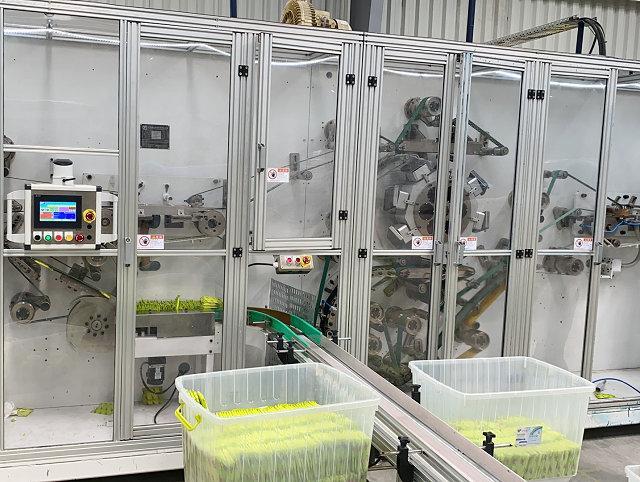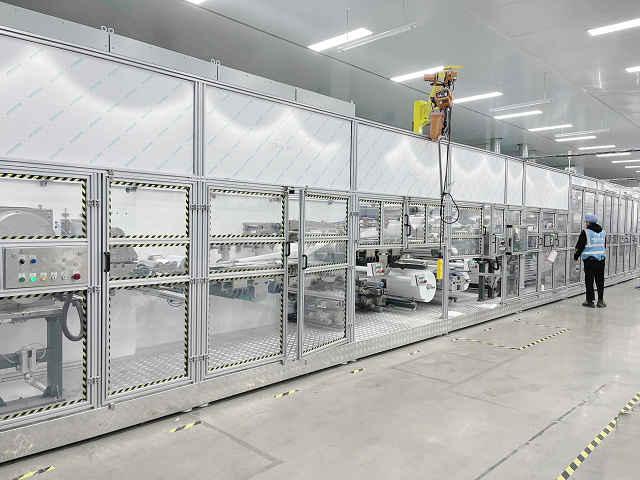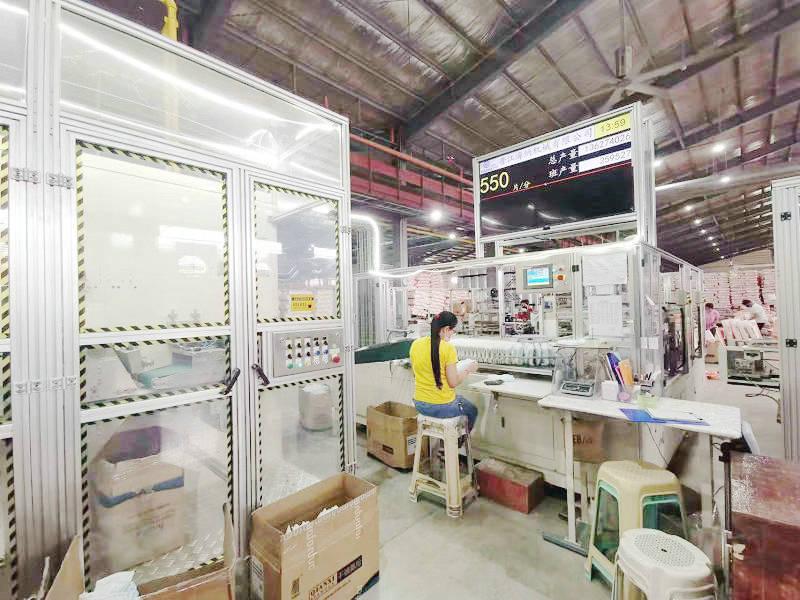In recent years, the demand for diapers has surged due to an increase in birth rates and a growing awareness of hygiene among parents. This heightened need has led to the development of diaper machines designed specifically for commercial use. These machines not only cater to the needs of manufacturers but also address environmental concerns by offering innovative solutions for diaper production. In this article, we will explore the various aspects of commercial diaper machines, including their types, functionality, benefits, and considerations for businesses looking to invest in them.
Understanding Commercial Diaper Machines
Commercial diaper machines are specialized equipment that produce diapers on a large scale. Unlike home-use machines, these industrial machines are built to handle high volumes, ensuring efficiency and consistency in production. They can create various types of diapers, including disposable, cloth, and biodegradable options. The machines typically incorporate advanced technology, such as automation and precision engineering, which streamlines the manufacturing process from raw material input to finished product output.
Types of Diaper Machines
There are several types of commercial diaper machines available, each designed for specific needs and production capacities. The main categories include:
- Disposable Diaper Machines: These machines produce single-use diapers, which are the most common type in the market. They utilize materials like superabsorbent polymers (SAP) and non-woven fabrics.
- Cloth Diaper Machines: With a growing trend towards sustainability, cloth diaper machines manufacture reusable diapers made from fabric materials. These machines often emphasize eco-friendly processes.
- Biodegradable Diaper Machines: Designed to produce diapers that break down more quickly than traditional disposables, these machines cater to environmentally conscious consumers.
Key Features of Commercial Diaper Machines
When considering a diaper machine for commercial use, several key features should be taken into account:
- Production Speed: The speed at which a machine can produce diapers is crucial for meeting market demands. High-capacity machines can produce thousands of diapers per hour.
- Automation Level: Advanced machines often feature automation, reducing labor costs and increasing efficiency. Automation can include robotic arms for packing, cutting, and stacking diapers.
- Quality Control Systems: Integrated quality control systems ensure that each diaper meets safety and quality standards, minimizing defects and waste.
Benefits of Investing in Diaper Machines
Investing in commercial diaper machines offers numerous advantages for manufacturers:
- Cost Efficiency: Producing diapers in-house can significantly lower production costs over time, especially when compared to outsourcing.
- Customization: Manufacturers can tailor the specifications of the diapers produced, catering to specific markets or consumer preferences.
- Supply Chain Control: In-house production allows for better control over the supply chain, reducing delays and enhancing responsiveness to market changes.
Considerations Before Purchase
Before investing in a commercial diaper machine, businesses should consider several factors:
- Initial Investment: The cost of purchasing and installing a diaper machine can be substantial. Businesses must assess whether the potential return on investment justifies the initial expenditure.
- Maintenance Requirements: Regular maintenance is essential to ensure the longevity and efficiency of the machine. Potential buyers should inquire about service agreements and support.
- Regulatory Compliance: Diaper manufacturing is subject to various regulations regarding safety and materials used. Companies must ensure that their machines and processes comply with local laws.
Market Trends Impacting Diaper Machine Technology
The diaper manufacturing industry is influenced by several current trends that impact the technology and design of diaper machines:
- Sustainability: There is a growing consumer preference for sustainable and biodegradable products, prompting manufacturers to invest in machines that can produce eco-friendly diapers.
- Smart Technology: The integration of IoT (Internet of Things) technology allows for better monitoring and management of production processes, increasing efficiency and reducing downtime.
- Personalization: As consumers seek more personalized products, machines that can easily adapt to different sizes, shapes, and designs are becoming increasingly valuable.
Case Studies of Successful Implementations
Several companies worldwide have successfully implemented commercial diaper machines, showcasing the potential benefits:
- Company A: Known for its eco-friendly diaper line, Company A invested in biodegradable diaper machines and reported a 30% reduction in production costs along with increased sales due to strong consumer demand for sustainable products.
- Company B: A major player in the disposable diaper market, Company B upgraded its machinery to include automation, resulting in a significant decrease in labor costs and production errors, leading to improved profit margins.
Conclusion: The Future of Diaper Manufacturing
As the demand for diapers continues to rise, the role of commercial diaper machines becomes increasingly important. With advancements in technology, sustainability, and customization capabilities, businesses can leverage these machines to meet market demands efficiently and effectively. By considering the benefits, potential challenges, and ongoing market trends, manufacturers can make informed decisions about investing in diaper production equipment that aligns with their business goals. The future of diaper manufacturing looks promising, driven by innovation and a commitment to meeting consumer needs.



